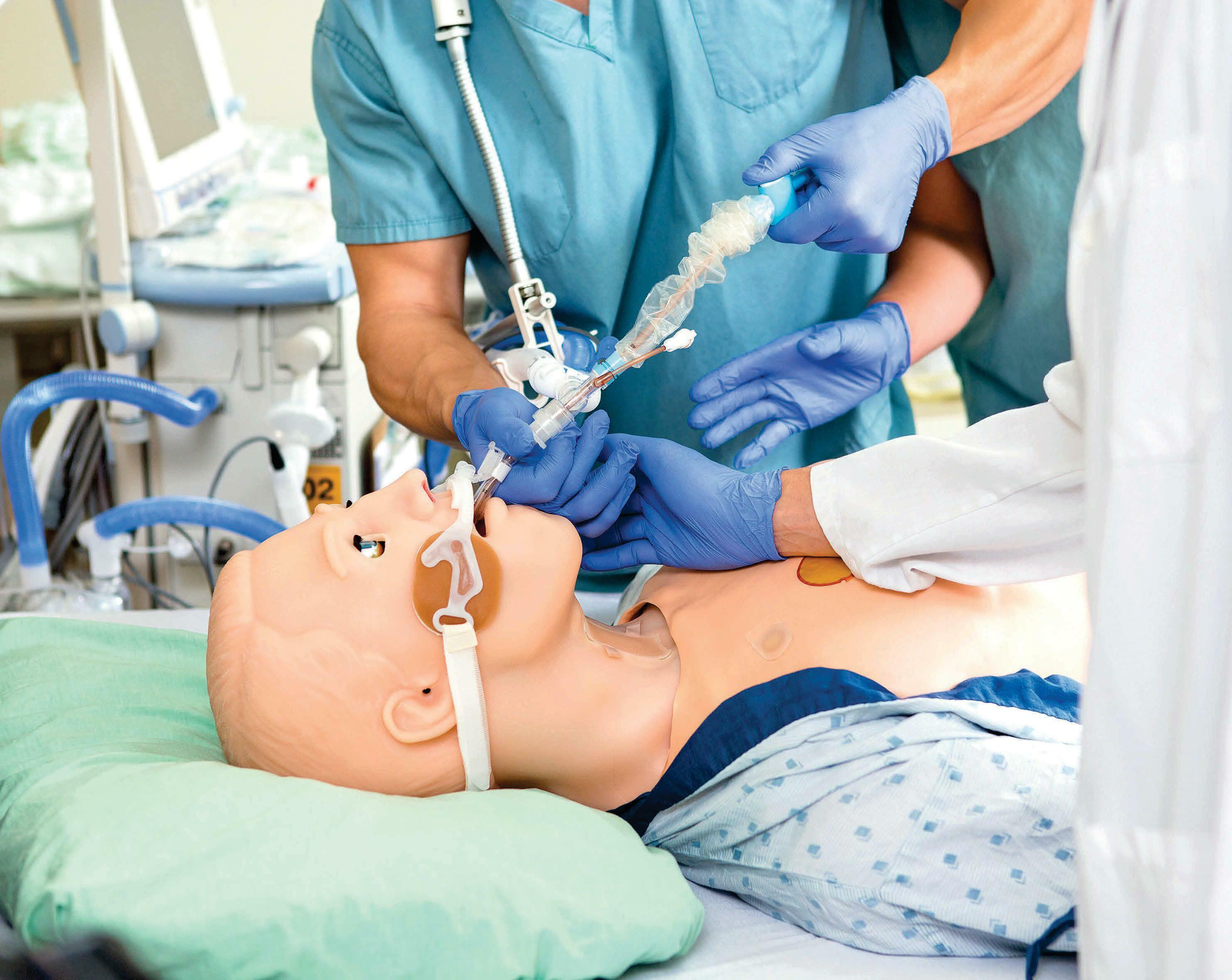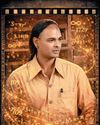Intentar ORO - Gratis
TECH CARE
THE WEEK India
|September 07, 2025
Simulation technology is redefining medical education, allowing students and doctors to learn without ever putting a patient at risk. It is also being integrated into real-life clinical settings as therapeutic tools, from stroke rehabilitation to treating paediatric conditions like autism and ADHD

In early August, while travelling on the Bengaluru metro rail, Dr Karthik Venkatesh, a medical intern at the Vydehi Institute of Medical Sciences and Research Centre, Bengaluru, was confronted with an emergency.
As the train left Benniganahalli station, he saw a man, in his late 50s, collapse in the compartment. Passengers assumed it was a seizure, but Venkatesh quickly stepped in to administer CPR. In less than five minutes, he achieved Return of Spontaneous Circulation (ROSC)—the moment when the patient's heart begins beating effectively on its own, restoring blood flow without the need for chest compressions. ROSC within five minutes is an exceptional achievement, as it often takes longer in most real-world, out-of-hospital cases, and each additional minute without circulation can reduce survival odds by 7–10 per cent. The patient was moved out at KR Puram station, where metro authorities rushed him to Sri Lakshmi Hospital in eight minutes. The timely intervention stabilised the patient and saved his life.
Soon after the episode, Venkatesh texted Dr Javed Syed, his mentor and head of Vydehi Advanced Simulation Academy (VASA) in Bengaluru—south Asia's largest and most frequently used multidisciplinary medical simulation centre. “Sirrrrr... your training just saved a life,” he wrote.
Administering CPR in an emergency is just one of many lifesaving skills Venkatesh had learnt as a budding medical student. But theory is only one part of medical education. Much of it requires hands-on practice. Even so, as a new intern, he feels confident performing procedures ranging from emergency first aid to bedside tasks like inserting IV cannulas, drawing blood, dressing wounds and even assisting in surgeries. It is all thanks to the rigorous training he received in VASA's simulated, controlled environment that employs high-fidelity life-sized manikins and virtual or augmented reality equipment.
Esta historia es de la edición September 07, 2025 de THE WEEK India.
Suscríbete a Magzter GOLD para acceder a miles de historias premium seleccionadas y a más de 9000 revistas y periódicos.
¿Ya eres suscriptor? Iniciar sesión
MÁS HISTORIAS DE THE WEEK India
THE WEEK India
The buzz is real
The investment announcements by Google and other companies in Andhra Pradesh are already yielding tangible results, triggering a real estate surge across Visakhapatnam's IT zones and adjoining districts.
1 mins
January 18, 2026

THE WEEK India
Legacy reloaded
From sugar mills in Uttar Pradesh to Mumbai's high-street retail, a new generation of scions is reshaping India's old businesses
7 mins
January 18, 2026

THE WEEK India
TRIAL IN THE US IS THE ONLY WAY TO GET RID OF MADURO
Mercedes Baptista Guevara is an attorney and diplomat based in Spain.
3 mins
January 18, 2026

THE WEEK India
Wrong decisions, right places
Sometimes a film, a book, and a bottle of vodka blend in ways so unexpectedly perfect that you feel grateful simply for having been present.
4 mins
January 18, 2026

THE WEEK India
TRUST FACTOR
Lokesh's willingness to listen, his comfort with detail, and his bias for execution create confidence
3 mins
January 18, 2026

THE WEEK India
March to Caracas—Yankee oil doo
Lefties and liberals want Narendra Modi to condemn Don Trump's invasion of Venezuela. All invasions are bad; innocents get shot. But if we condemn one, shouldn't we condemn all?
2 mins
January 18, 2026

THE WEEK India
Revision before the exam
BJP and Trinamool use SIR to kick-off state election campaign, but those affected by the exercise remain anxious about their future
5 mins
January 18, 2026
THE WEEK India
Nuclear governance: caution to confidence
Nuclear power has long occupied a singular and somewhat uneasy place in Bharat's public imagination. It has been viewed, often with pride, as proof of scientific achievement and strategic resolve, yet governed with a restraint that reflected a deeper discomfort with the diffusion of risk.
2 mins
January 18, 2026

THE WEEK India
I WANT TO BE KNOWN AS CHIEF JOB CREATOR
Historically, the Telugu Desam Party has been a regional party but it has always had the nation’s interest at heart.
12 mins
January 18, 2026

THE WEEK India
The battle of words
As young adults we certainly used abbreviations and cryptic phrases. But MC and BC did not stand for the master of ceremonies and the era before Christ. They stood for something else which, if said in full, would certainly have made our mothers make us rinse our mouths with soap. Once you have tasted soap, you would not want to taste it ever again.
4 mins
January 18, 2026
Listen
Translate
Change font size
